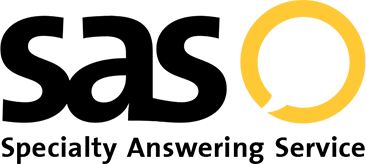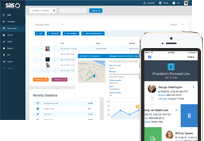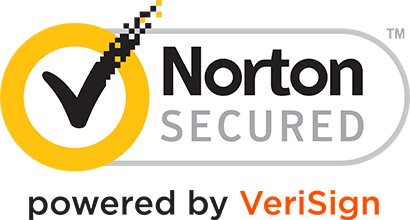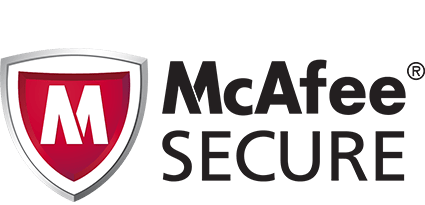- Log In
- Support
- Company
- Contact Us
- Live answers @ 1-888-532-4794
6 Reasons Why Your Answering Service Should Be Recording Calls

Reflect for a moment on how often you’ve dialed up a business and heard this: “Your call may be monitored or recorded for quality assurance purposes.” Sounds all too familiar, right? That phrase is commonplace these days, and it generally means that the company you’re trying to reach, or the answering service that is managing their inbound calls, is keeping tabs on communications to ensure that calls are fielded professionally and thoroughly.
Some answering services provide call recording for their clients as a courtesy. For many businesses, this is a great feature that enables you to have a full understanding of your customers’ needs, especially if you can’t quite catch all the details from the message you receive. It is also a means of protection against customers who may try to manipulate the system by stretching the truth. At the same time, it protects the consumer, should an issue arise with how they were treated.
What about Federal wiretapping laws?
Federal law and many State laws say that recording telephone calls and in-person conversations is permissible, as long as one party consents. That means that your call may be recorded, without your knowledge, because your consent isn’t required. However, there are some places where both parties must consent in order to legally record any communication. And that is where the “your call may be recorded” soundbite comes in. At the call center level, that brief, upfront recording lets both the caller and the operator know that they are on a monitored line.
Do all call centers record calls?
Some advanced answering services include call recording as part of your plan, and call recordings are made accessible via a public-facing portal. You’ll also find answering services that record calls, but recordings cannot be retrieved without directly requesting them. And if a bunch of clients call in at once for their recordings, the service will have a logistical nightmare on their hands. For smaller centers, recording software and file storage are expenses that they can’t justify. So, you may not have the option to record anything.
One thing that it’s important to be aware of is that your call center may technically be recording calls illegally. For example, let’s say that calls are being answered in a one-party state, such as New York, but the caller is located in a two-party state, such as California. Even though New York doesn’t require callers to be informed that they’re being recorded, if the call originates from a two-party state, then you usually defer to the stricter of the two States’ laws. You’ll want to keep that in mind if you run a national business with customers in both one-party and two-party States.
Is call recording right for my business?
With certain industries, e.g., criminal law, whistleblower hotlines, and medical clinics, if someone knows that their call is being recorded, they may be less inclined to stay on the line. And that can be a hindrance to growing your customer base. For the most part, though, call recording is ubiquitous, and consumers have come to expect it. Not only that, but there are a number of benefits to listening to a call after your customer hangs up.
That being said, if you are using an answering service that offers call recording, but you aren’t currently taking advantage of the feature, here are the top six reasons why you should!
- Identify areas for script content improvement based on call flow: Are there commonalities in the places where operators stumble, e.g., phrasing or industry-specific words? If you can find the spots that are tripping them up, then you may be able to tweak the language to make calls more fluid.
- Identify the most common questions / call types, and program the script accordingly: You might start off with a basic script – one path where you’re only gathering name, number and regarding. Then, as you listen to calls and review messages, you may notice that most after-hours callers need emergency service, whereas most business-hours callers are asking for the owner. That one path can then be split into three: Calling for Service, Calling for the Owner, and All Other Calls. You could even include a business hours function in the Service path to accommodate an after-hours reach on-call schedule.
- Identify operators who are unsure of themselves or unprofessional so that they can be trained or addressed accordingly: It’s easy to pick out the operators who just don’t feel comfortable on the phones. Maybe they are confused about your business, maybe they’re new, or maybe they’re just having a bad day. By listening to call recordings and providing feedback, you are giving the service a heads up on any holes in their training and helping them ensure that only the best of the best are fielding your calls.
- Identify operators who excel at what they do so that they can be recognized for their achievement: In the same way that you provide feedback for less-than-stellar performance, it is also a boon to any operator’s self-confidence when they know that they’ve represented your business exactly as you had hoped. A little kudos goes a long way to inspiring continued success!
- Gather call details in the event that the operator’s message is confusing, incomplete, or inaccurate: Despite any operator’s best efforts, there will be occasional mistakes in documentation. They are only human, afterall. In the event of errors or unclear message details, having that recording to refer to as a backup can mean the difference between hooking a new client or losing a lead.
- Have recordings on file when it comes to disgruntled or harassing customers: As a business owner, you hope that you’ll never have the displeasure of dealing with a customer who is determined to give you an earful. But as a realist, you know that you can’t please everyone all the time. That being said, for those times when callers are raging on the phone, having a recording of abusive behavior may afford you some leverage in how you choose to respond.
When the first device that recorded sounds was invented in 1857, no one could have predicted just how useful it would become in the modern era. So, as your business continues to move forward, keep up with the technology that was designed to make your life easier. Ask your answering service about call recording, and use it to your advantage!
Categories
- Advice (32)
- Answering Service 101 (18)
- Best Practices (10)
- Call Center Jobs (6)
- Call Center Software (20)
- Comparison (2)
- Customer Service (30)
- Funny (31)
- Holidays (19)
- Industry Hacks (19)
- Infographics (53)
- International (1)
- Medical (8)
- News (12)
- Phone Etiquette (2)
- Phones (14)
- Pricing (8)
- Quizzes (3)
- Receptionist (11)
- SAS Products (29)
- Scripting (4)
- Services (5)
- Small Business (25)
- Starting Up (7)
- Tips and Tricks (19)
- Uncategorized (1)
- Videos (19)
- Workplace (6)
Recently writen
- Call Center Script Best Practices: Advanced Script Block Tips to Optimize Your Answering Service
- January 2025 Release Notes – Adjustments to Call Details Timeline, New Scripting Updates, Live Transcription, and more!
- April 2024 Release Notes – Voicemail Greetings, Ability to Access Websites With a Username and Password, and more!
- March 2024 Release Notes – New Add-On, Settings Revamp, and more!
Follow Us
How about a demo?
We'll show you how our web portal works and answer any questions you have about SAS.
Schedule a demo







